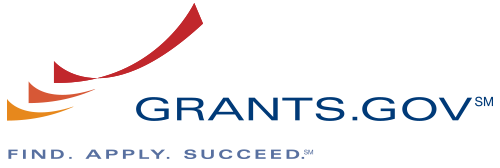Additional Requirement – 12: Lobbying Restrictions
Applicants should be aware that award recipients are prohibited from using CDC/HHS funds to engage in any lobbying activity. Specifically, no part of the federal award shall be used to pay the salary or expenses of any grant recipient, sub-recipient, or agent acting for such recipient or sub-recipient, related to any activity designed to influence the enactment of legislation, appropriations, regulation, administrative action, or Executive order proposed or pending before the Congress or any state government, state legislature or local legislature or legislative body.
Restrictions on lobbying activities described above also specifically apply to lobbying related to any proposed, pending, or future Federal, state, or local tax increase, or any proposed, pending, or future requirement or restriction on any legal consumer product, including its sale or marketing, including but not limited to the advocacy or promotion of gun control.
This prohibition includes grass roots lobbying efforts by award recipients that are directed at inducing members of the public to contact their elected representatives to urge support of, or opposition to, proposed or pending legislation, appropriations, regulations, administrative actions, or Executive Orders (hereinafter referred to collectively as “legislation and other orders”). Further prohibited grass roots lobbying communications by award recipients using federal funds could also encompass any effort to influence legislation through an attempt to affect the opinions of the general public or any segment of the population if the communications refer to specific legislation and/or other orders, directly express a view on such legislation or other orders, and encourage the audience to take action with respect to the matter.
In accordance with applicable law, direct lobbying communications by award recipients are also prohibited. Direct lobbying includes any attempt to influence legislative or other similar deliberations at all levels of government through communications that directly express a view on proposed or pending legislation and other orders and which are directed to members, staff, or other employees of a legislative body or to government officials or employees who participate in the formulation of legislation or other orders.
Lobbying prohibitions also extend to include CDC/HHS grants and cooperative agreements that, in whole or in part, involve conferences. Federal funds cannot be used directly or indirectly to encourage participants in such conferences to impermissibly lobby.
However, these prohibitions are not intended to prohibit all interaction with the legislative or executive branches of governments, or to prohibit educational efforts pertaining to public health that are within the scope of the CDC award. For state, local, and other governmental grantees, certain activities falling within the normal and recognized executive-legislative relationships or participation by an agency or officer of a state, local, or tribal government in policymaking and administrative processes within the executive branch of that government are permissible. There are circumstances for such grantees, in the course of such a normal and recognized executive-legislative relationship, when it is permissible to provide information to the legislative branch in order to foster implementation of prevention strategies to promote public health. However, such communications cannot directly urge the decision makers to act with respect to specific legislation or expressly solicit members of the public to contact the decision makers to urge such action.
Many non-profit grantees, in order to retain their tax-exempt status, have long operated under settled definitions of “lobbying” and “influencing legislation.” These definitions are a useful benchmark for all non-government grantees, regardless of tax status. Under these definitions, grantees are permitted to (1) prepare and disseminate certain nonpartisan analysis, study, or research reports; (2) engage in examinations and discussions of broad social, economic, and similar problems in reports and at conferences; and (3) provide technical advice or assistance upon a written request by a legislative body or committee.
Award recipients should also note that using CDC/HHS funds to develop and/or disseminate materials that exhibit all three of the following characteristics are prohibited: (1) refer to specific legislation or other order; (2) reflect a point of view on that legislation or other order; and (3) contain an overt call to action.
It remains permissible for CDC/HHS grantees to use CDC funds to engage in activities to enhance prevention; collect and analyze data; publish and disseminate results of research and surveillance data; implement prevention strategies; conduct community outreach services; foster coalition building and consensus on public health initiatives; provide leadership and training, and foster safe and healthful environments.
Note also that under the provisions of 31 U.S.C. Section 1352, recipients (and their sub-tier contractors and/or funded parties) are prohibited from using appropriated Federal funds to lobby in connection with the award, extension, continuation, renewal, amendment, or modification of the funding mechanism under which monetary assistance was received. In accordance with applicable regulations and law, certain covered entities must give assurances that they will not engage in prohibited activities.
CDC cautions recipients of CDC funds to be careful not to give the appearance that CDC funds are being used to carry out activities in a manner that is prohibited under Federal law. Recipients of CDC funds should give close attention to isolating and separating the appropriate use of CDC funds from non-CDC funds.
Use of federal funds inconsistent with these lobbying restrictions could result in disallowance of the cost of the activity or action found not to be in compliance as well as potentially other enforcement actions as outlined in applicable grants regulations.


